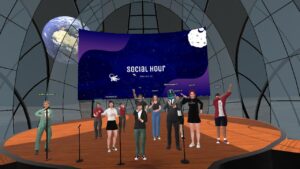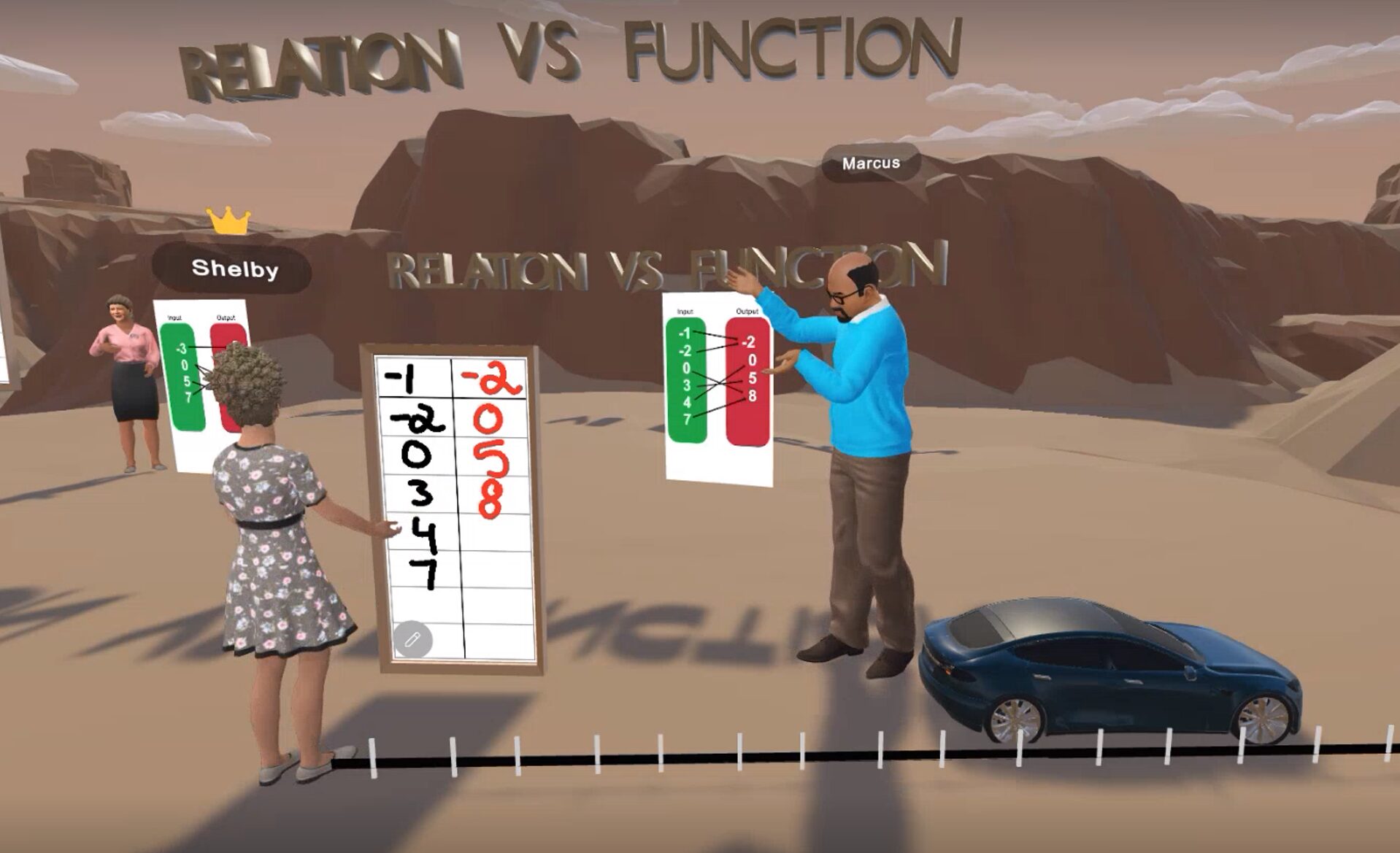How Virtual Reality Can Combat Loneliness in Online Learning
By: Beverly Matoney | The Homeschoool Copywriter
 In recent years, homeschooling and online education have gained immense popularity. These methods offer flexibility and personalized learning experiences, but they often come with a significant downside: loneliness. As students navigate the world of online schooling, they may find the lack of social interaction isolating. However, innovative solutions like virtual reality (VR) courses are emerging to tackle this issue head-on.
In recent years, homeschooling and online education have gained immense popularity. These methods offer flexibility and personalized learning experiences, but they often come with a significant downside: loneliness. As students navigate the world of online schooling, they may find the lack of social interaction isolating. However, innovative solutions like virtual reality (VR) courses are emerging to tackle this issue head-on.
Why Loneliness is a Pressing Issue for Online Learners
To understand the loneliness factor, it’s essential to recognize why it’s a pressing issue for online learners. Traditional schools offer a social environment where friendships can blossom, and students can engage in collaborative learning. In contrast, homeschooling and online education often lack this essential component. Your student may spend hours in front of a screen, interacting with lessons and assignments, but missing out on meaningful connections with peers.
The Impact of Loneliness on Emotional Well-Being
Research shows that social interaction is crucial for emotional well-being. Loneliness can lead to decreased motivation, lower academic performance, and even mental health issues. Your student deserves an educational experience that not only boosts academic success but also supports their emotional health. This is where virtual reality shines.
How VR Technology Enhances Learning and Social Interaction
VR technology allows your student to immerse themselves in a digital environment that simulates real-world experiences. By wearing a VR headset, they can engage with interactive lessons, explore new environments, and collaborate with classmates in a virtual space. This immersive experience significantly reduces feelings of loneliness, providing your homeschooler with a sense of community and connection.
Transforming Traditional Lessons with VR
One of the most exciting aspects of VR courses is their ability to transform traditional lessons into engaging, interactive experiences. Imagine your student studying history by walking through a virtual replica of a medieval village or exploring the depths of the ocean while learning about marine biology. Engaged students learn quicker and retain information longer, making learning more enjoyable and creating opportunities for shared experiences with other students.
Building Friendships and Connections in a Virtual Classroom
 In a virtual reality classroom, your student can collaborate with classmates from around the world. This is particularly beneficial for homeschooled students or those in online programs who may not have access to a local peer group. VR platforms often include features that allow students to work on group projects, participate in discussions, and engage in team-building activities. These interactions help students form friendships and build a support network, reducing feelings of isolation.
In a virtual reality classroom, your student can collaborate with classmates from around the world. This is particularly beneficial for homeschooled students or those in online programs who may not have access to a local peer group. VR platforms often include features that allow students to work on group projects, participate in discussions, and engage in team-building activities. These interactions help students form friendships and build a support network, reducing feelings of isolation.
Developing Social Skills Through VR
Social skills are crucial for personal and professional success, and virtual reality provides a safe space for students to practice these skills. In a VR environment, they can engage in role-playing scenarios, participate in public speaking exercises, or navigate social situations that may be challenging in real life. This hands-on practice can boost confidence and help develop essential interpersonal skills.
Connecting with a Diverse, Global Community
One of the significant advantages of VR courses is the ability to connect with a diverse group of individuals. Unlike traditional classrooms limited by geography, virtual reality brings together students from different backgrounds and cultures. This diversity enriches the learning experience and allows students to build a broader community.
Networking and Professional Development Opportunities in VR
In addition to forming friendships, VR courses offer valuable networking opportunities. As your student connects with classmates and educators, they may also encounter professionals in their field of interest. These connections can lead to mentorship opportunities, apprenticeships, internships, or collaborative projects that enhance their educational journey. Building a network early can be incredibly beneficial as students navigate their academic and career paths.
Extracurricular Activities in Virtual Reality
 Students need fun, too! Virtual reality platforms often host extracurricular activities such as clubs, sports, and events that your student can join. These activities provide a sense of belonging and community, often missing in traditional homeschooling or online education. Whether your student is interested in coding, art, debate, or another topic, they can find like-minded peers and share their passions.
Students need fun, too! Virtual reality platforms often host extracurricular activities such as clubs, sports, and events that your student can join. These activities provide a sense of belonging and community, often missing in traditional homeschooling or online education. Whether your student is interested in coding, art, debate, or another topic, they can find like-minded peers and share their passions.
How to Get Started with VR in Homeschooling
If you’re considering incorporating VR into your homeschooling or online education, it’s essential to research available programs. Look for platforms like OptimaEd that offer a variety of courses and experiences that align with your student’s interests and learning goals, giving them plenty of opportunities to explore new subjects in an engaging way.
The Future of Education with Virtual Reality
The future of education is evolving, and virtual reality is playing a significant role in this transformation. Your homeschooler can embrace this technology and enhance their learning adventure. By participating in VR lessons, they can also combat loneliness, build long-lasting connections, and immerse themselves in a vibrant educational community.
Conclusion: VR as a Solution to Loneliness in Homeschooling
Virtual reality courses offer a promising solution to the loneliness often experienced in homeschooling and online education. Through engaging lessons, collaborative learning environments, and opportunities for social interaction, VR can help your student connect with others while pursuing their academic goals. Consider adding VR to your homeschool plans so your student can explore virtual worlds, enhance their experience, and build meaningful relationships. The possibilities are endless, and the benefits are profound.
About the Author: Beverly Matoney
Beverly Matoney is a wife, mother to two wonderful adult children, and writer living in northeast Georgia. She began her career in sales and marketing, but eventually opted for the stay-at-home life. When her oldest child was three, she and her husband decided homeschool was the best path for their family. That was way back in the early 90s when homeschool was just beginning to gain steam as an education alternative. But what an adventure it was!
Fast forward 20+ years, and their children have grown, graduated from homeschool, gone to college, and started their own lives. What’s a former home educator to do? She follows another dream she had of being a writer.




